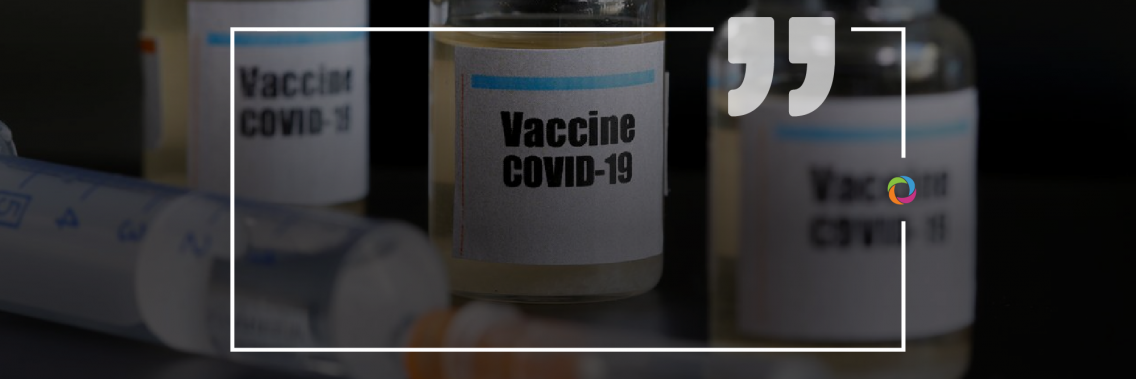‘Vaccine’ is the only word that brings hope to a recovery from the pandemic caused by the coronavirus. There is also a growing concern among scientists and economic experts that wealthy nations are securing doses for their own citizens at the expense of poorer nations. This could lead to a failure to control the global pandemic, some experts state.
What is vaccine nationalism and who created it?

“Vaccine nationalism focuses on the narrative that a country or society is considered autonomous when deciding about the production, distribution and marketing of a vaccine without making it a ‘Global Public Good’. Vaccine nationalism is more about the distribution of vaccine within a particular geography or nation. In a vaccine nationalism narrative, social justice and the equitable access and control of the vaccine by the global population and the universalization narrative are strangled in their infancy. It limits the role and choice of the global government to make the vaccine universally available and it is controlled by the few nations who have the resources and power to produce and market it. National security and national interest supersede all other criteria.”

“We talk about “Vaccine Nationalism” when a country secures doses of the vaccine for its own people and prioritizes its own domestic market before making it available to other countries. This is done through pre-purchase pacts between a government and the vaccine producers. A growing number of countries are taking a “my nation first” approach to developing and distributing potential vaccines or other pharmaceutical treatments. Who created it? Countries like the United States, the United Kingdom, Japan and the European Union have spent billions of dollars on transactions with vaccine manufacturing front runners even before their effectiveness is proven. It should be emphasized that vaccine nationalism is not new. A similar situation arose in 2009 during the H1N1 flu pandemic. At that time Australia, the first country to come up with a vaccine, blocked exports while some of the wealthiest countries entered into pre-purchase arrangements with several pharmaceutical companies.”

“Around the globe, this principle is not new especially when most western countries succeed in securing doses of vaccines through pre-purchase agreements for their own citizens as a priority. This includes setting their own domestic budgets and agreements with manufacturers. For example, countries like Britain, France, Germany and the US have entered into pre-purchase agreements with vaccine manufactures for a COVID-19 vaccine with front runners such as Pfizer Inc, Johnson & Johnson and AstraZeneca Plc. In 2009, during the H1N1 flu pandemic, Australia was the first country to come up with a vaccine and then blocked exports while some of the wealthiest countries entered into pre-purchase agreements with several pharmaceutical companies. This move can only make vaccines unaffordable and inaccessible to everyone apart from the rich countries.”

“With COVID-19, many changes and inequalities have been highlighted and continue to show the differences in wealth and power across different nations. One of these changes that can be clearly seen is “vaccine nationalism” which can be seen in a multitude of wealthy countries. Russia and the United Kingdom are clear examples of this. Russia is promoting the use of its untested and unverified vaccine and the United Kingdom is buying the future stock of AstraZeneca’s vaccine for its own population. “Vaccine nationalism” could be said to have been created by populism and, due to the ease by which populism spreads in the world, it has a chance of affecting many countries, including developing ones.”

“In my opinion, the ‘nation first’ approach has emerged due to the perceived failure of the international community to mitigate the virus’ global impact at the first indications of the epidemic in 2019. As the virus rapidly evolved into a pandemic, although an international issue, national governments had no option but to quickly develop their own approach to safeguard their citizens. In many cases, the inconsistent national implementation of regulations created deep instability within governance and economies, a situation that is still reverberating today threatening to destabilize nations further.”
What is the danger of vaccine nationalism?

“Vaccine nationalism will inhibit access to and control over the vaccine and, as a result, the global public health immunity agenda will be compromised. Unless everyone gets immunity, the fear of a novel COVID 19 infection will continue because today, we are in a world that has an open economy and access. In this globalized world with inter-dependent nations, people in developed economies depend on skilled human resources and manufacturers in the developing world. This global movement can increase the spread of infection and so countries will have to share the vaccine doses equitably. By negating the principles of equity and social justice, vaccine nationalism will result in a high level of exclusion produced by the actions of the state, markets or social actors resulting in the spread of the pandemic infection. I believe there is going to be serious problem with this nationalism issue.”

“The greatest danger that “vaccine nationalism” poses is the possibility it provides for increasing inequality among wealthy nations and their developing counterparts. Increasing inequality means a greater gap between developed and developing nations, and the possibility of a shift in power and a lack of representation of developing nations on both the international and COVID-19 stage. By having this movement, nations that have the possibility to store and limit access to vaccines to populations in developing nations could lead to disastrous consequences on various levels, including politics, inequality and global health. This leads to more deaths, worse economic and social outcomes and steps need to be taken to prevent this at all costs.”

“Vaccine nationalism would mean each nation prioritizes its own interests, inside its own borders, rather than cooperating and fighting against a pandemic that respects neither. As such, vaccine nationalism runs against global public health principles. Those principles are particularly important because they are made for countries and people around the world to live healthier, safer and longer lives. Many health experts worry it could threaten the global response to COVID-19.”
What should the international community do to counteract this?

“It calls for a leadership agenda of action, stakeholder and message alignment on the vaccine. Global leaders with respect and integrity should come forward to resolve the current discourse. The vaccine should be declared as a ‘public good’ which is required for all persons to be able to live with basic human dignity. It should be the legal duty of nations to ensure universal access to public goods. The vaccines should be available patent free and available free of cost for all. I would suggest a global vaccine governance system which can be responsive, safe, inclusive, caring and accountable. There could be vaccine reliance where the nation’s capacities and capabilities can be enhanced to produce adequate vaccines but it should not be restricted to a particular geography.”

“The international community must find alternatives to arrest vaccine nationalism through global collaboration, research and development etc. which is being done through the WHO-supported COVAX Facility mechanism in which more than 170 countries have expressed interest – about 90 low- and middle-income countries and 80 fully self-financing countries. These countries will get assured supplies to protect at least a third of their populations.”

“As public health experts see it, in an ideal world, nations would collaborate to create vaccines and, as soon as one proves safe and effective, the formula would be licensed to every facility with the capability of manufacturing it. The resulting doses would go first to health care workers in virus hot spots around the world, then to health workers globally, then to the rest of the world’s population. The World Health Organization and other international organizations have set up a system to accelerate and equitably distribute vaccines, the COVID-19 Vaccines Global Access (COVAX) Facility seeks to entice rich countries to sign on by reducing their own risk that they may be betting on the wrong vaccine candidates.”

“Steps need to be taken to prevent the disastrous consequences of vaccine nationalism. By having clear moderators that can prioritize the well-being of the most vulnerable in every population and having clear lines of communication to the vaccine developers, the effects of vaccine nationalism could be mitigated. Social actors in wealthy countries who can act as moderators to prevent the increase of inequality across the world could also be of great importance in preventing these disastrous consequences.”

“There is a larger issue now in terms of national governments maintaining their trust in the international community. A nation’s first and foremost responsibility is to its citizens; the international community will now have a difficult time convincing national governments of the efficiency of ‘one global approach’ and the ability of a global governance organization to manage, distribute and evaluate a vaccine in an effective and equal manner. I hope that, post-pandemic, the international community will evaluate how it handled the crisis with an independent audit and evaluate whether its overall structure and approach is fit for purpose to manage future crises, and have the courage of leadership and mutual commitment to implement recommended changes.”
Check more than 600 job opportunities in health sector here.


